What Australians are earning on average at different ages and who may get a payrise in 2021
See what Aussie workers should be earning at different ages, genders and how your state compares. Plus: how to ask for a pay rise.
National
Don't miss out on the headlines from National. Followed categories will be added to My News.
The average Aussie is unlikely to see a pay rise in 2021 as the economy continues to run below capacity, but experts predict pockets of wage growth in specific high-skilled areas.
Australia’s wage price index – measuring the change in price of labour – maintained its historically low annual growth rate of 1.4 per cent for a second quarter in the three months to December.
Education and training (up 2.4 per cent year on year) and electricity, gas, water and waste services (2 per cent) were the strongest industries, while accommodation and food services (0.3 per cent) and rental, hiring and real estate services (0.7 per cent) were weakest.
Commonwealth Bank head of Australian economics Gareth Aird said wage growth would likely “step up a little bit this year” but it was still expected to be low.
“Low wages growth doesn’t mean no wages growth, just that the average person isn’t getting all that much by way of a pay rise,” Mr Aird said.
“It was the case pre-COVID and was the case for a while.
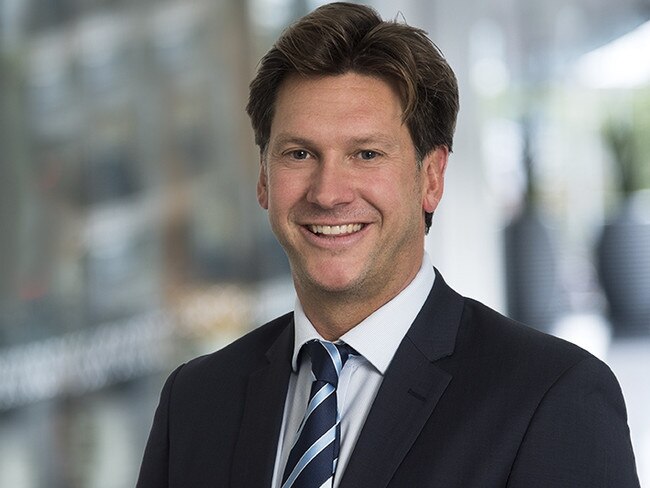
“The environment needed to generate wages growth would be a tight labour market, so low unemployment, and for that to happen you need an economy running at capacity,” he said.
“It’s possible we get to that place by the end of this year, but it’s more likely than not that we don’t, given our starting point is one where there is still quite a bit of slack in the economy.
“There is a lot of stimulus out there from the government and the Reserve Bank but clearly COVID is holding back the economy at the moment.”
Employment agency Michael Page Australia senior managing director Sharmini Wainwright said this year would be focused on getting more people employed rather than on increasing wages.
“Genuine pay rises across the board will have a more material affect next year onwards,” she said.
“There are a few steps in (economic) recovery and we are probably in step one or two, whereas material pay rises come in step three or four.”
Despite this, Ms Wainwright said salaries were definitely increasing in parts of the technology sector.
“This is probably one of our most resilient sectors,” she said.
“If we had 100 more candidates we could place them in a week.
“(Experienced) data analysts and engineers, data scientists, cybersecurity analysts – demand for these individuals exceeds supply.”
She also predicted salary growth for specific marketing and human resources roles.
“Traditional marketing roles are very flat, if not salaries have perhaps gone backwards, but on the positive side, any role in CRM (customer relationship management) expertise or focused on digital performance, those salaries are definitely going up,” she said.
“In HR, the bright spot is health and safety specialists as there is such a skill shortage in high regulation environments.”
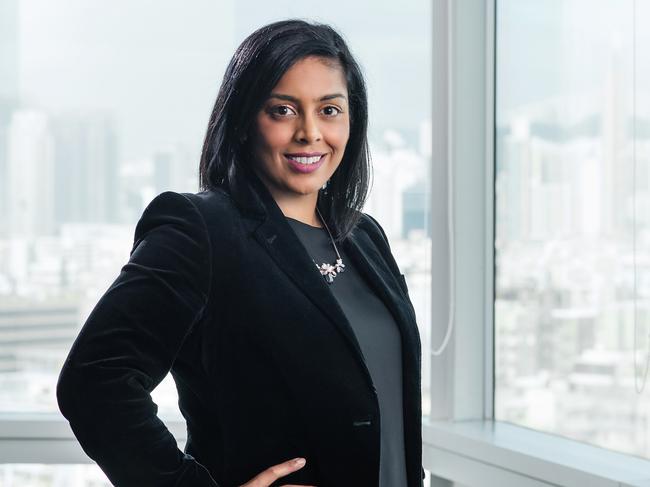
Mr Aird predicted there may also be pockets of wage growth in the construction sector to keep up with the “huge amount” of public investment in the pipeline, increased lending for residential renovations and new builds spurred by the Federal Government’s HomeBuilder package.
Meanwhile, in Adelaide specifically, Recruitment Consulting and Staffing Association (RCSA) chief executive Charles Cameron said recruiters expected strong demand for highly-skilled talent in advanced manufacturing, which would lead to salary increases.
“They say the industry is going to boom and become recession proof for Australia in the future,” Mr Cameron said.
“It plays into the desire of Australia to become less reliant on overseas manufacturing.
“It will be more technical knowledge and professionals.”
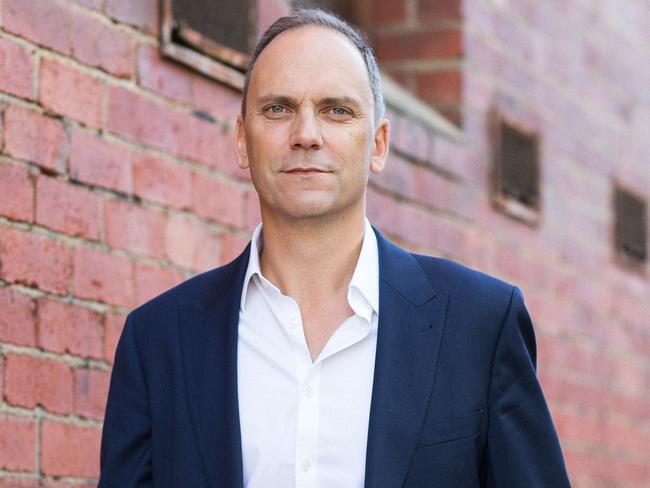
WOMEN STILL EARN $239 LESS A WEEK
Women forced to juggle full-time work with care-giving roles are hitting their peak salary earlier than men – and topping out at $239 a week less.
Latest figures from the Australian Bureau of Statistics revealed women aged 35 to 44 and working full time earned a median weekly income of $1500 (about $78,000 a year) – their highest-earning age bracket.
Men, on the other hand, averaged $1700 at that age and continued to climb salary ranks until averaging $1739 a week (about $90,500 a year) at age 45 to 54.
Workplace Gender Equality Agency (WGEA) engagement executive manager Kate Lee said there were a combination of factors at play.
“Men still dominate leadership positions across all industries (and) there is a point that women are having more time out of the workforce with kids and babies while men are hitting the point where they are getting more senior roles and taking off on that trajectory,” she said.
“Men and women also do quite different work. We have quite a gender-segregated workforce and female-dominated professions have lower pay.
“If you compare the wages you might attract in a finance role compared to aged care and child care, those roles are quite different.”
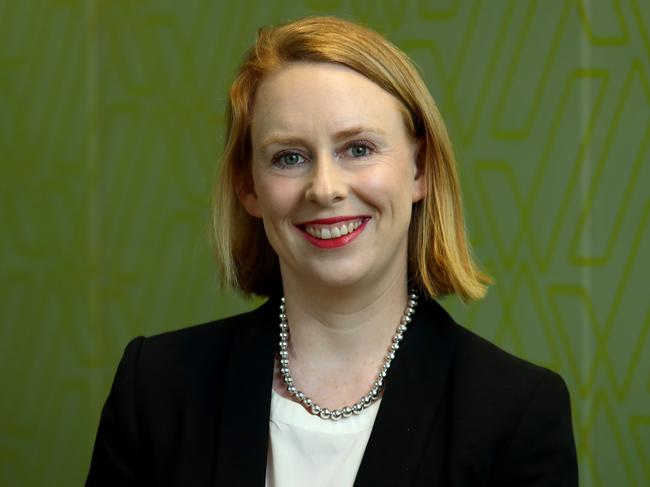
She said there may also be an element of unconscious bias against women when promotions become available as employers question women’s commitment once they have children.
“(Women) have the penalty of being a primary career with child rearing then within the next 20 years they have greatest burden of elder care and looking after ageing and sick parents, too, so they are hit with a double whammy,” she said.
“Even if you get through the kids’ years, you may be looking at caring for parents later in your career.”
Ms Lee said WGEA data showed a concerning trend of “gender equality fatigue” as some organisations put equality policies to one side during the disruption of COVID-19 “in favour of other business imperatives”.
Although the portion of employers who conducted a pay gap analysis increased last year, the portion who took action as a result dropped by 6.1 per cent.
It was the first time that figure had declined since WGEA records began in 2013.
Recruitment agency Randstad national diversity and inclusion lead Kerry McQuillan said some organisations had let diversity and inclusion policies fall by the wayside last year, but they were now becoming a priority again.
“Diversity and inclusion has been, for some companies, a nice ‘add on’ … so a lot of companies that had that mindset did drop a lot of their initiatives because they were worried about business as usual,” she said.
“We are now starting to see more of those practices coming back up again.
“There are some candidate-short markets so (employers are asking) ‘who else can we bring in to come work us? What different demographics need to work for us?’
“A lot of companies are thinking about their branding and how did they look through COVID.”
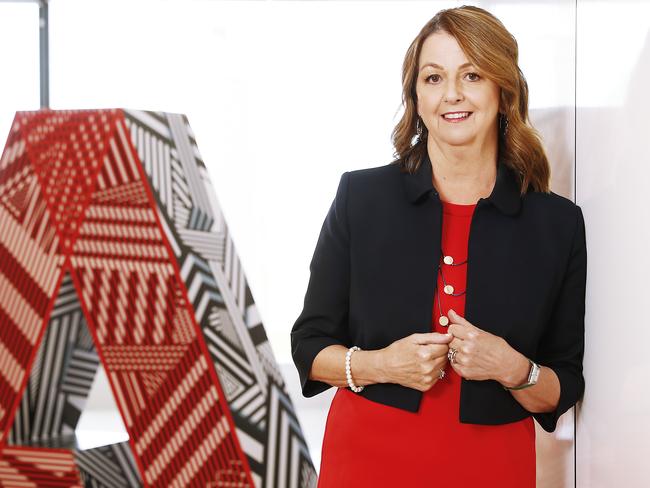
BUCKING THE TREND: SUZANNE STEELE, ADOBE VICE PRESIDENT ANZ
Suzanne Steele was never going to let being a woman get in the way of her career.
At 16 in the UK, she left school and planned to join the police but changed her mind after being accepted and learning there were no senior female officers in the country.
Now at 56, she is smashing gender stereotypes as vice president for Australia and New Zealand at tech giant Adobe, and continuing her career trajectory beyond when most Australian women hit their salary peak.
Ms Steele said corporate policies were making workplaces fairer for women but there were still other factors at play.
“The roles women are more akin to doing hit their (salary) peak in their 40s whether the person is male or female,” she said.
“That’s as senior as you can go in many (education, healthcare and social work) roles.
“Meanwhile, there are only about 10 female CEOs in the ASX200 and CEOs generally are in their 50s, so that does create this gap.”
Ms Steele, who has three adult children, said science also worked against women as they would always be the “main bearers and carers of children”.
“It is more difficult for women because women take more time out for family reasons and therefore when they come back they lose their footing,” she said.
“The guys who were peers to you are generally going to have a year more experience because you have taken a year out doing something not in the corporate world.
“In my mind, though, running a family is like running a small business so that year of experience is just as valuable, dare I say more valuable, than a year in the workplace.”
Her advice for women was to find good mentors, keep learning, be open to sideways career moves, and realise they are not “done” at age 40.
“As you come out of your 40s and leave the shackles of family life behind you become liberated to become whoever you want to be,” she said.
“There are huge opportunities for women to earn as much, if not more, than their male equivalents if they are experienced enough and able to tell their story. I think the world is their oyster.”
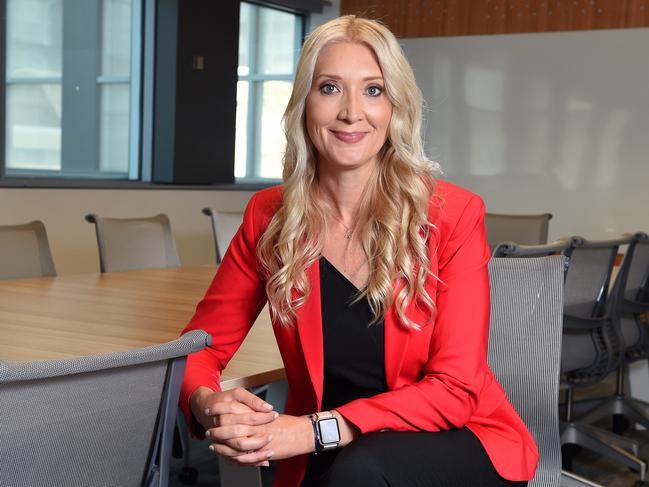
BUCKING THE TREND: MARLEESE ATTILAKOS
CISCO COMMERCIAL SALES LEADER FOR VICTORIA
Marleese Attilakos is about to turn 44 – the average age Australian women hit their peak salary – but she has no plans to let her career slow down.
The Pascoe Vale South mother of two is commercial sales leader for Victoria at tech company Cisco and hopes to become “one of the new and diverse faces of cybersecurity”.
“I have worked in IT for over 20 years but my love of cybersecurity came later in my career,” Ms Attilakos said.
“I few years ago I worked on a project for a customer and was astounded by the diverse non- technical roles so it was a light bulb moment – I didn’t want that project to end.
“I wrote down my transferable skills but I had some gaps and that’s what started my transformation journey.”
Mrs Attilakos enrolled in a Graduate Certificate of Cybersecurity Management through Swinburne Online in 2019 and was soon offered her latest promotion.
Now she is studying toward the Master of Cybersecurity Management part time while working full time and raising her sons, aged 16 and 12, with her husband.
“It does surprise me that women hit their earning peak earlier than men,” she said.
“I think we need to put ourselves forward more but on the other hand we also need other people to advocate for us.
“I got a change in confidence from finishing that first certificate and I was able to articulate my ‘why’ and what I am doing to upskill to become a stronger asset to the organisation.”
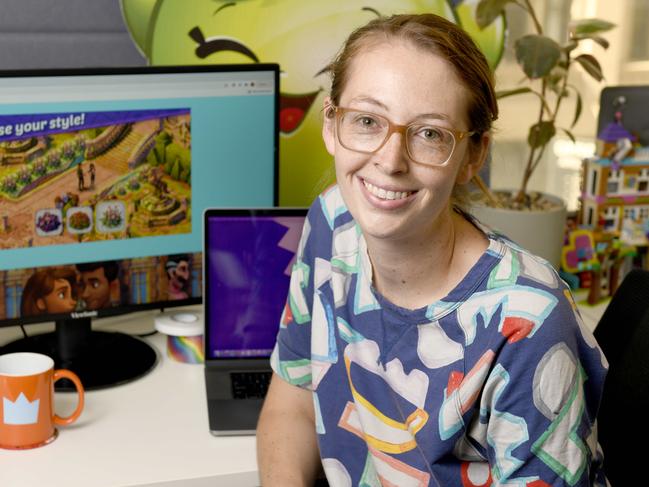
BUCKING THE TREND: HANNAH MURDOCH, STRATEGIC PROJECTS MANAGER, MIGHTY KINGDOM
Mother of two Hannah Murdoch does not worry her gender will be a disadvantage at South Australian-based gaming company Mighty Kingdom.
The Windsor Gardens resident, 32, recently returned to her role as strategic projects manager after a stint of maternity leave – made easier by her employer’s work/life balance-friendly policies.
“(Since COVID-19), we have a four day work week (so) full-time pay for a 30-hour work week,” Ms Murdoch said.
“Everyone has Monday off but a lot of our clients are in the northern hemisphere so time zone wise it works out really well.”
The largest independent game developer in Australia also offers equal parental leave for both male and female staff, removing bias in hiring and promotion processes.
There is no waiting period, either.
“It’s nine weeks of leave for men and women,” Ms Murdoch said.
“One of our dads had two kids when we hired him and about a month later he said ‘my wife is having a baby next week’.
“If a person is away for a year, they are still the same person we want on the team.
“They are going to come back and bring even more value and perspective.”
Mighty Kingdom, which employs 88 people and growing, also has set salary bands to ensure pay packets are based on objective criteria rather than a worker’s ability to self-advocate – a characteristic that research shows is more common in men.
“Salary bands are based on your experience and input to make sure we are looking at what impact that person has over who they are and who we see the most,” Ms Murdoch said.
“I don’t think I will hit my earning peak at 44, not at Mighty Kingdom.”
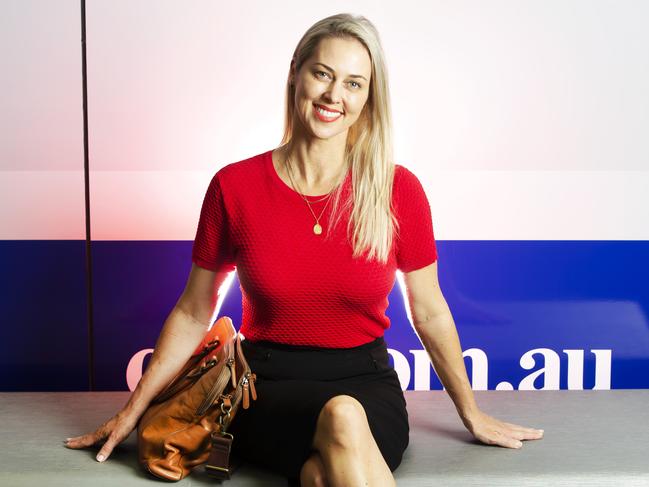
BUCKING THE TREND: TINA TAYLOR, GSK MEDICAL SALES REP, HEALTH AND WELLBEING LEAD
Broadbeach mother Tina Taylor is surprised most woman see their salaries drop after age 44.
The GSK medical sales representative and health and wellbeing lead reached that age this year and believes her career still has a long way to go.
“It goes to show there is some sort of disparity between male and female equality when it comes to earning capacity, but not in my workplace,” Ms Taylor said.
“It’s an equal playing ground at GSK.
“Women have absolutely just as much opportunity as men do.”
GSK is a member of Medicines Australia’s Pharma Australia Inclusion Group (PAIG) which aims to build a more inclusive industry.
Ms Taylor said she hoped to further develop her career in the health and wellbeing realm, with her sights set on big corporate campaigns.
“I’m definitely going to keep on growing and forging forward, and looking at other areas of development for my growth and success as well,” the mother of one said.
“It’s not just about earning capacity, it’s about what’s serving you for your own journey and whether you are living your purpose and adding value to what you do every day.”
Ms Taylor’s advice for women who were worried about missing out on career opportunities or promotions was to speak up and “have a voice about what you want”.
“Make it clear with management what your goals are,” she said.
“Work together with them in a team environment to reach them – it’s always well received in my experience.”
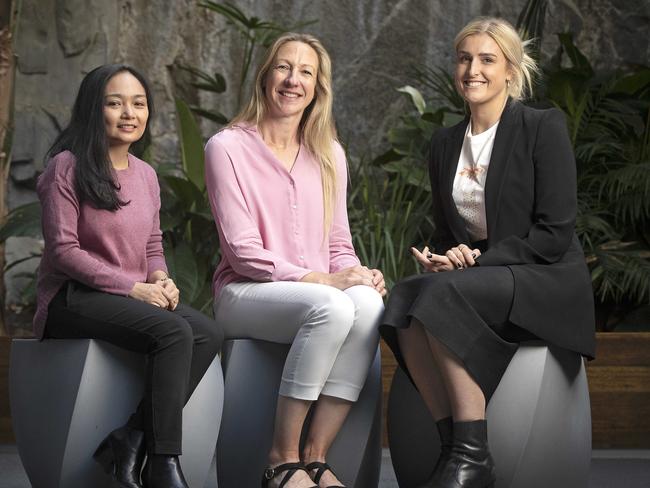
BUCKING THE TREND: KATE MCINTOSH, ENGINEERS AUSTRALIA TASMANIAN PRESIDENT
Securing an engineering management role was something Kate McIntosh couldn’t have envisioned for herself 20 years ago.
The Engineers Australia Tasmanian president and GHD Associate’s passion for gender equality started when her own pathway to becoming an engineer was thwarted by barriers.
Ms McIntosh completed an entire science degree before discovering her passion for engineering and returning to university to redo her studies while working full time in consulting.
“I did go to a girls’ school, but I guess engineering wasn’t a career that I knew much about,” she said.
“I probably would have gone into uni straight from school if I had the opportunity to know more about engineering when I was at school.”
Since then Ms McIntosh has observed other barriers, including inflexibility for women taking maternity leave.
She runs outreach programs through GHD engineers to help girls at Collegiate, Fahan and St Marys girls schools pursue their STEM subjects early.
“I’m really passionate about introducing engineering to girls when they’re at school so they have the opportunity to take on the challenging, exciting and rewarding career.
GHD design engineer Stephanie Migaling has been in the profession for 15 years, beginning her career in the Philippines before coming to Tasmania.
“I’ve been pretty fortunate to work with GHD because they’re supportive regardless of gender or background to get people into engineering and management roles,” she said.
HOW TO ASK FOR A PAY RISE
Source: Career Development Association of Australia (CDAA) national vice president Linda Jeffrey
PREPARE
* Consider your boss/manager/supervisor’s personality and work commitments then organise
a meeting when they are not time pressured and most likely to be open to discuss the matter.
* Write down your achievements over the last one to two years noting how and when you have added value to the organisation.
* Research similar roles in other organisations to demonstrate the going rate.
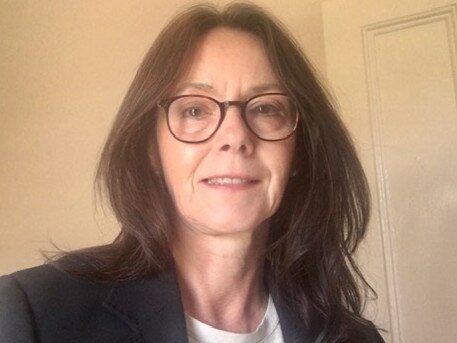
DISCUSS
* Mentally establish your position prior to the meeting, but be calm, professional and ready to
listen to and acknowledge your employer’s position.
* Remember this is a negotiation and both sides may need to compromise, so have a salary range rather than a specific figure in mind. For example, you may have to agree an initial rise, with a further rise in six to 12 months if you can maintain a consistently high performance.
* Don’t push for an immediate “yes” as your boss may need to liaise with HR or senior
management before making a decision.
FOLLOW UP
* Email afterwards confirming the key discussion points and thanking your boss for taking time to discuss your request.
* Include a future date at which you will follow up again if you don’t hear from them.
* If the answer is “no” and you feel you are not being appropriately paid for your contribution, consider looking for another job.
- with Annie McCann



